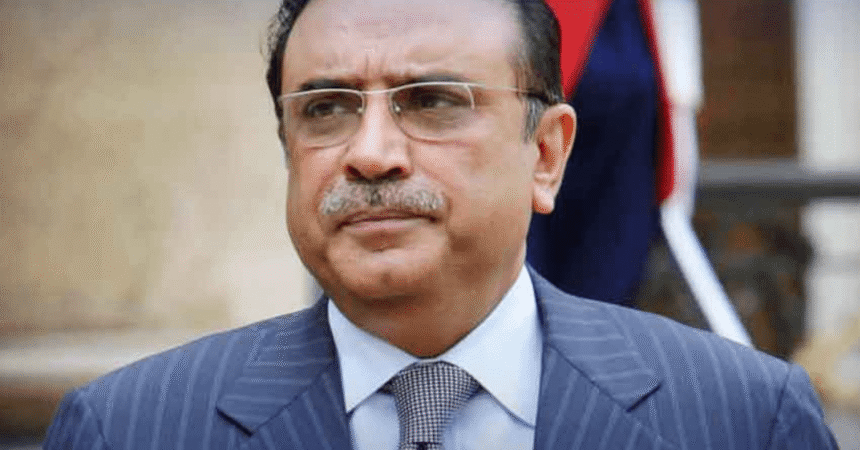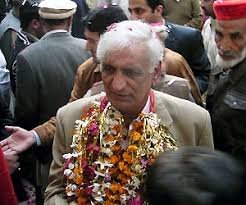In a significant address during the Global Sustainable Transport Forum 2024 held in Beijing from September 25 to 26, President Asif Ali Zardari reaffirmed Pakistan’s dedication to developing a safe, sustainable, and environmentally friendly transportation system. His statements underscored the importance of international collaboration, particularly with China, to achieve critical sustainable development goals (SDGs). This address is crucial as it aligns with global efforts to promote sustainable infrastructure, which is increasingly seen as essential for economic growth, environmental protection, and social equity.
Understanding Sustainable Transport
Sustainable transport refers to modes of transportation that are environmentally friendly, economically viable, and socially inclusive. This concept encompasses various aspects, including reducing greenhouse gas emissions, minimizing resource consumption, and promoting accessibility for all segments of society. As urbanization increases and climate change becomes an undeniable reality, countries worldwide are recognizing the urgency of transitioning to sustainable transport systems.
President Zardari’s focus on sustainable transport aligns with these global trends, positioning Pakistan to not only address its transportation challenges but also contribute positively to international efforts. The move towards sustainable transport is particularly relevant for Pakistan, a country grappling with significant infrastructure challenges and environmental issues.
Pakistan’s Infrastructure Landscape
Pakistan’s transportation infrastructure has historically faced numerous challenges, including inadequate road networks, unreliable public transport systems, and the impacts of climate change. With a population exceeding 240 million, efficient and sustainable transport is vital for economic development, connectivity, and access to services.
Current Transportation Infrastructure
Pakistan’s transport network comprises roadways, railways, and airways, with road transport being the most widely used mode. The country has made strides in improving its infrastructure, but much work remains. According to various reports, many rural areas lack all-weather roads, making access to essential services a challenge.
Moreover, the existing public transportation systems in urban areas often struggle to meet the demands of the growing population. Issues such as traffic congestion, pollution, and safety remain prevalent, prompting calls for reforms and investment in sustainable options.
Rural Accessibility and the Impact of Climate Change
One of the significant issues in Pakistan’s transportation landscape is rural accessibility. Many rural communities remain isolated due to poor infrastructure, which hinders economic opportunities and access to education and healthcare. President Zardari’s acknowledgment of improving rural access, with 92% of rural areas reportedly now having all-weather roads, is a positive development. However, the sustainability of these improvements is under threat from climate change.
The country has experienced extreme weather events, such as floods and heavy rainfall, which have severely damaged transport networks. These events not only disrupt travel but also isolate communities, making it difficult for them to access markets and services. Addressing these challenges requires a multifaceted approach that combines infrastructure development with environmental considerations.
Initiatives for Sustainable Transport
In his address, President Zardari outlined several initiatives that Pakistan is undertaking to enhance its transport infrastructure sustainably. These initiatives are not only aimed at improving accessibility but also at promoting environmental stewardship.
Pink Buses Initiative
One of the most notable initiatives mentioned by President Zardari is the introduction of pink buses designed specifically for women. This program provides safe and accessible public transportation options for women, addressing gender-specific transportation needs. The pink bus initiative not only enhances safety but also encourages more women to participate in the workforce and engage in public life, thus contributing to social equity.
Expansion of Public Transport Systems
In addition to gender-focused initiatives, expanding public transport systems to include more environmentally friendly options is crucial. Electric buses and hybrid vehicles are becoming increasingly popular in urban areas worldwide, and Pakistan has the potential to adopt similar strategies. By investing in clean technologies, the country can reduce its carbon footprint while providing efficient transport services.
Sustainable Infrastructure Development
Zardari’s commitment to resilient infrastructure is essential in the context of climate change. Building infrastructure that can withstand extreme weather events is critical for ensuring the long-term sustainability of transport networks. This approach involves using durable materials, implementing smart technology, and adopting best practices in urban planning.
Public-Private Partnerships
To enhance the effectiveness of these initiatives, fostering public-private partnerships (PPPs) can play a significant role. Collaborations with private companies can lead to innovative solutions, increased investment, and improved service delivery. Such partnerships can also facilitate knowledge transfer and capacity building in sustainable transport practices.
International Cooperation and Partnerships
A recurring theme in President Zardari’s address was the importance of international cooperation, particularly with China. The longstanding partnership between Pakistan and China has been a cornerstone of economic development initiatives, particularly under the China-Pakistan Economic Corridor (CPEC).
CPEC and Sustainable Development
CPEC represents a transformative opportunity for Pakistan, offering significant investment in infrastructure development. As Zardari pointed out, aligning CPEC projects with sustainable transport principles is crucial. This alignment can ensure that new infrastructure is not only efficient but also environmentally sustainable, contributing to long-term economic resilience.
China’s experience in developing sustainable transport solutions can serve as a model for Pakistan. By collaborating on technology transfer, best practices, and investment in green technologies, Pakistan can enhance its capabilities in building a sustainable transport network.
Regional and Global Engagement
President Zardari’s commitment to sustainable transport is also about engaging with the broader international community. Participation in forums like the Global Sustainable Transport Forum allows Pakistan to share its experiences, learn from other countries, and contribute to global discussions on sustainable development.
Such engagement can help Pakistan attract foreign investment and expertise, further supporting its sustainable transport goals. By positioning itself as a proactive participant in international initiatives, Pakistan can enhance its reputation and build strategic alliances that promote mutual interests.
Challenges and the Way Forward
While President Zardari’s address painted a hopeful picture of Pakistan’s commitment to sustainable transport, several challenges remain.
Climate Change Adaptation
Adapting transport infrastructure to withstand climate change effects is one of the most pressing challenges. As extreme weather events become more frequent, ensuring that roads, bridges, and public transport systems remain operational is critical. This adaptation requires investment in resilient infrastructure and continuous monitoring of climate risks.
Funding and Investment
Securing adequate funding for sustainable transport initiatives is another challenge. While international partnerships can provide support, Pakistan must also develop strategies to mobilize domestic resources. This includes creating an enabling environment for private sector investment and exploring innovative financing mechanisms.
Public Awareness and Community Engagement
Building public support for sustainable transport initiatives is essential for their success. Community engagement and awareness campaigns can help educate citizens about the benefits of sustainable transport, encouraging behavioral changes that support these efforts.
Moreover, engaging communities in the planning and implementation of transport projects ensures that solutions are tailored to local needs and conditions, increasing the likelihood of success.
President Zardari’s reaffirmation of Pakistan’s commitment to sustainable transport at the Global Sustainable Transport Forum 2024 marks a significant step in the country’s efforts to build an inclusive, resilient, and environmentally friendly transportation system. By focusing on international cooperation, innovative initiatives, and sustainable infrastructure development, Pakistan can navigate the challenges it faces while enhancing its transport networks.
As the nation moves forward, the emphasis on sustainable transport will be vital for achieving broader economic and social objectives. By leveraging partnerships, embracing new technologies, and prioritizing community engagement, Pakistan can create a transportation system that serves its people and protects the environment for future generations.
#SustainableTransport #Pakistan #AsifAliZardari #China #SDGs #EcoFriendlyTransport







